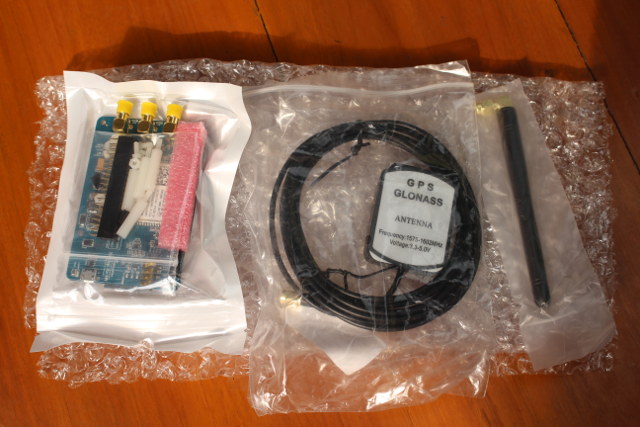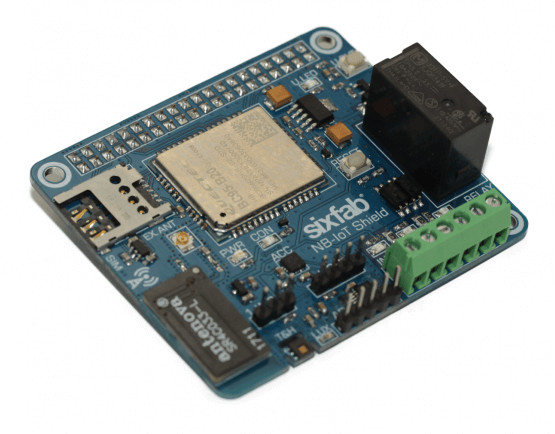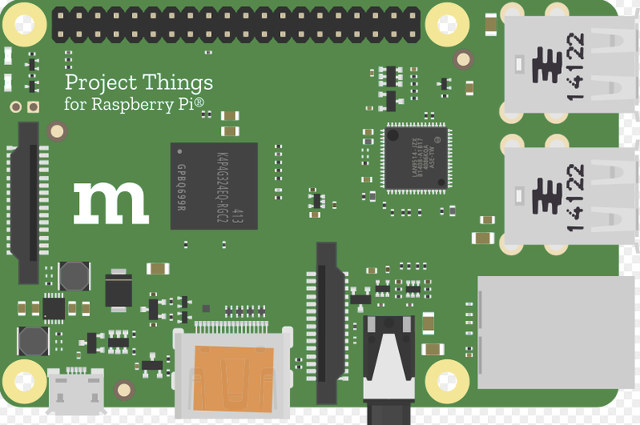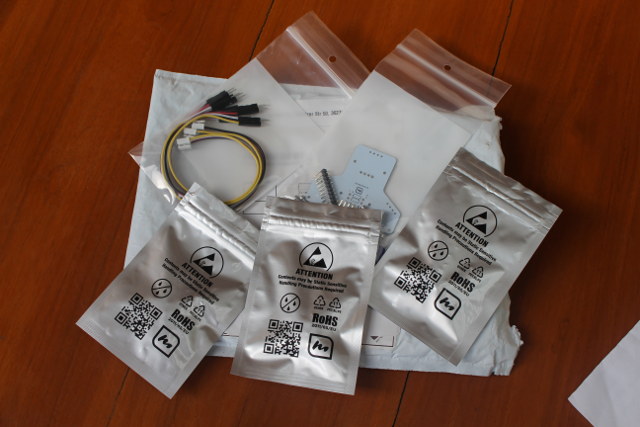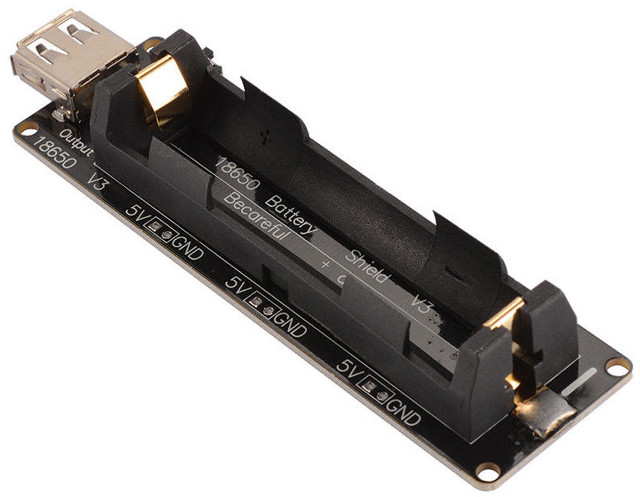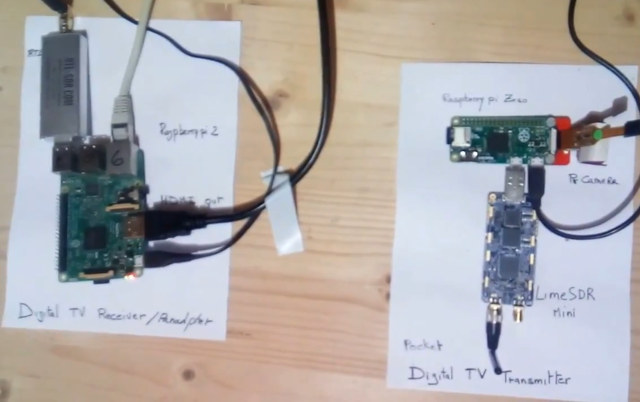The Embedded Linux Conference 2018 and the OpenIoT Summit 2018 will jointly take place next month, on March 12 – 14, 2018 in Portland, Oregon, USA. The former is a “vendor-neutral technical conference for companies and developers using Linux in embedded products”, while the latter is a “technical conference for the developers and architects working on industrial IoT”. The Linux Foundation has already published the schedule, and it’s always useful to learn what will be discussed about even for people who won’t attend. With that in mind, here’s my own virtual schedule with some of the talks I find interesting / relevant to this blog. Monday, March 12 10:50 – 11:40 – Progress in the Embedded GPU Ecosystem by Robert Foss, Collabora Ltd. Ten years ago no one would have expected the embedded GPU ecosystem in Linux to be what it is now. Today, a large number of GPUs have […]
How to Use 3G and GPS on Raspberry Pi with ThaiEasyElec 3G HAT Expansion Board
Venus Supply is an embedded systems company based in Bangkok, Thailand that sells products through their ThaiEasyElec website/brand, as well as a act as a local distributor for popular DIY electronics items. I previously tested their ESPino32 ESP32 board, and the company has now send me another of their new product called “3G HAT Expansion for Raspberry Pi” and based on Quectel UC20-G that support 3G and GPS/GLONASS connectivity globally, meaning it should work in any country with 2G or 3G coverage. After listing the specifications, going through unboxing and assembly with a Raspberry Pi 2/3 board, I’ll write some quick start guide to show what I had to do to use GPS and connect to 3G with a Hologram SIM card. 3G HAT Expansion for Raspberry Pi Specifications Quectel UC20-G wireless module supporting Cellular 3G – UMTS @ 800/850/900/1900/2100 MHz 2G – GSM @ 850/900/1800/1900 MHz Data – HSPA+ […]
Raspberry Pi 3 Sold for $29.95 on DFRobot (Promo)
As I browsed various sites checking out new arrivals and potential promotion, I found out DFRobot has now a promotion for the Raspberry Pi 3 Model B board for $29.95 apparently taking place between the 8th and 10th of each month (not only February). I added it to my cart to check out shipping to my address, and unless you can pick it up to their office, shipping adds $6, for a total of $35.95 shipped. Whether that is worth it depends where on your locale price and custom regulations. DFRobot does offer free (DHL) shipping for order over $150, but you can’t just buy 5 Raspberry Pi 3 boards at the discounted price, since the special offer apply to “one only one piece of Pi 3”, so you’d have to purchase something else from their website if you don’t want to pay for shipping. Nevertheless, even if you have […]
Sixfab Launches Arduino and Raspberry Pi NB-IoT Shields with Four Sensors
SixFab previously introduced a 3G/4G base shield for the Raspberry Pi boards that would take Quectel based mini PCIe card in order to add cellular connectivity to the popular development boards. The company is now back with NB-IoT shields that should better suited to IoT projects with lower hardware and data costs, and support either 40-pin Raspberry Pi boards or Arduino. SixFab Raspberry Pi NB-IoT Shield Specifications & features: Module – Quectel BC95-B20 NB-IoT Module supporting 800MHz frequency (suitable for the European market) Micro SIM card socket, PCB Antenna and u.FL socket for external antenna I/O expansions 4x Channel 12-bit ADC via ADS1015 Relay with optocoupler protection (24V DC, 120-220V AC Switching) 3-pin 1-Wire interface for DS18B20, DHT21, etc… 4-pin I2C interface 3.3V reference voltage Sensors MMA8452Q 3-axis accelerometer HDC1080 temperature sensor (-40 to +125 °C) HDC1080 humidity sensor (0 to 100%) ALS-PT19 ambient light sensor Misc – User button […]
Mozilla Project Things Framework for the IoT Works with Raspberry Pi 3 and Other Boards / Computers
The Internet of Things today relies on many standards, and for example Google Cloud relies on Weave, Amazon AWS IoT and Samsung SmartThings on MQTT, Apple iCloud and so on. The web also relies on many different markup or programming languages like HTML, JavaScript, PHP, Ruby, etc.. but as a user you don’t need to care, and in most cases, you can access any website with the same web browser. Last year, Mozilla started working on Project Things to bring the same ease of of use to the IoT, by implementing the proposed Web of Things standard by W3C that aims to reduce IoT fragmentation by allowing different vendors’ IoT offerings to work together. Mozilla has now announced the release of Project Things “open framework for connecting your devices to the web” suitable not only for hackers and developers, but easy enough to use for end users. The release includes […]
Getting Started with TinyLIDAR Time-of-Flight Sensor on Arduino and Raspberry Pi
TinyLIDAR is an inexpensive and compact board based on STMicro VL53L0X Time-of-Flight (ToF) ranging sensor that allows you to measure distance up to 2 meters using infrared signals, and with up to 60 Hz. Contrary to most other VL53L0X boards, it also includes an STM32L0 micro-controller that takes care of most of the processing, frees up resource on your host board (e.g. Arduino UNO), and should be easier to control thanks to I2C commands. The project was successfully funded on Indiegogo by close to 600 backers, and the company contacted me to provided a sample of the board, which I have now received, and tested with Arduino (Leonardo), and Raspberry Pi (2). TinyLIDAR Unboxing I was expecting a single board, but instead I received a bubble envelop with five small zipped packages. Opening them up revealed three TinyLIDAR boards, the corresponding Grove to jumper cables, and a bracket PCB for […]
$2 USB “18650 Battery Shield” Powers Arduino, ESP32, and Other Low Power Boards with a 18650 Battery
If you’re looking for battery power for one of your projects, you may consider a “18650 battery shield” – going for just above $2 on Aliexpress or eBay – for powering Arduino boards, Espressif ESP8266 or ESP32 boards, or any board that can be powered by 5V up to 2A via USB or headers, or by 3V up to 1A via headers. Specifications listed on eBay/Aliexpress: Power Input – 5 to 8V via micro USB port up to 0.5A charging Power Output 5V via Type A USB port 3V up to 1A via 3x 2-pin header 5V up to 2A via 3x 2-pin headers Misc – 1 switch control USB output, LED for charging status (green = full, red = charging) Battery protection (Over-charge or Over-discharge) Dimensions – 9.8 x 2.9 cm You’ll need to add your own 18650 battery, and be careful about polarity while installing it, since putting […]
Building a Compact Digital TV Transmitter with Raspberry Pi Zero, Pi Camera, and LimeSDR Mini USB SDR Board
There are few affordable standalone systems that allow you to transmit video over the air, and back in 2016, I had the chance to check out V-Bridge Muses-β MPEG-2/-4 encoder and DTV modular taking HDMI or composite video input. It was easy to use and worked fine, but it would still cost close to $600, and might have been a little smaller. Evariste Okcestbon has now created its own digital TV transmitter prototype, combining LimeSDR Mini USB SDR board with Raspberry Pi Zero board, and instead of supporting external input from HDMI or AV ports, he used an official Pi camera for video, and was able to transmit the video over a 1.2 GHz connection to a Raspberry Pi 2 with an RTL-SDR dongle, with the Pi 2 board also taking care of displaying the video signal. The full flow of transmission can be summarized as follows: Video from […]



